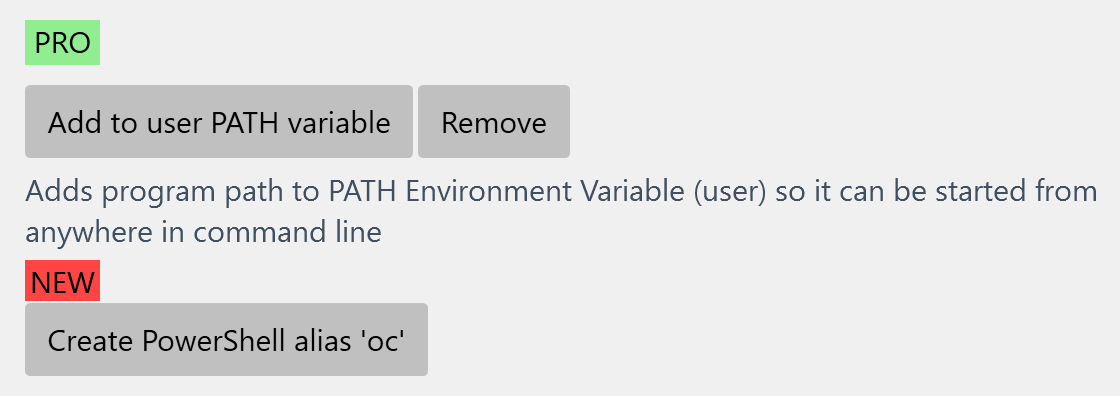Starting from Command line
Starting from Command line
OneCommander can be started from the command line using a number of switches.
Switched can be added directly in command line or as a paramter in a program shortcut.
If starting from command line, current path has to be where OneCommander.exe is located, otherwise search web how a program can be added to "system path variable".
In case you have a Pro license, you can let the program do this for you from Settings>Advanced:

Store version can already be started by calling onecommander.exe from anywhere (Store apps have aliases)
- At a particular path:
- onecommander.exe "C:\path"
- To open in the same tab:
- onecommander.exe -o "C:\path"
- To open in a new tab:
- onecommander.exe -o "C:\path" -newtab
- To start OneCommander with the Main Window in the default position (the equivalent of starting OneCommander and pressing Shift+F1):
- onecommander.exe -resetwindowposition
- The path "C:\fullpath" in the first Browser (e.g. the left browser in Standard Layout):
- onecommander.exe -path "<path>"
- onecommander.exe -p "<path>"
- onecommander.exe -"<path>"
- The path "C:\fullpath" in the second Browser (e.g. the right browser in Standard Layout):
- onecommander.exe -p2 "<path>"
- Start OC without Main Window (i.e. OneCommander running in the background)
- OneCommander.exe -nowindow
- (note that you shouldn't pin program opened like this or clicking the pinned icon will not open the window)
Open saved window (if you have window a name in New window dialog)
- onecommander.exe -openwin SomeWindowName
If you are using PowerShell, you can open OC in the current folder by typing
oc .
The Create PowerShell alias 'oc' has to be clicked - shown in the image above (Pro users only)